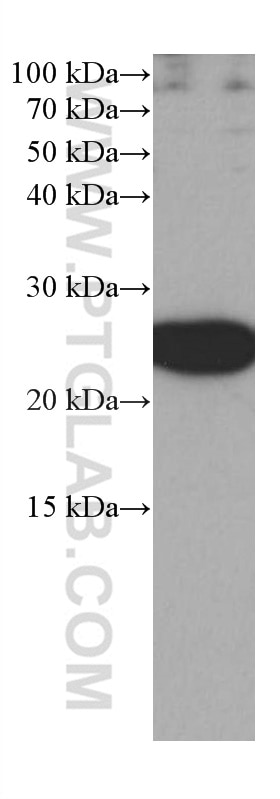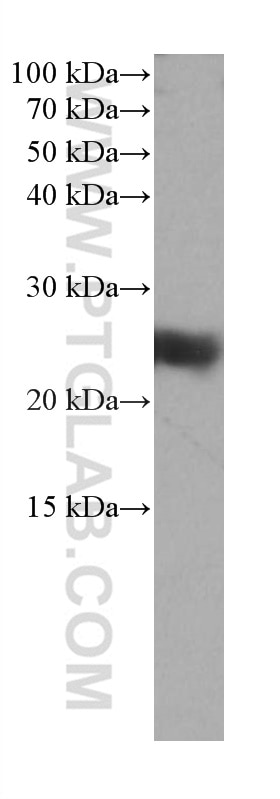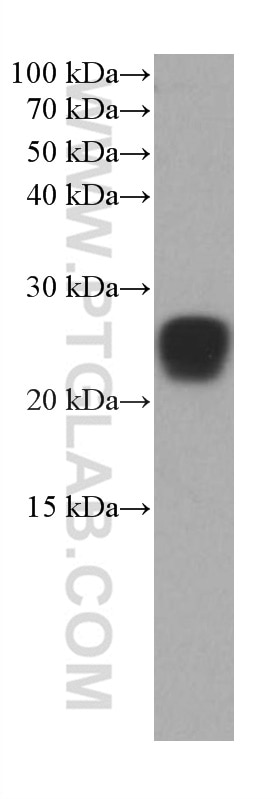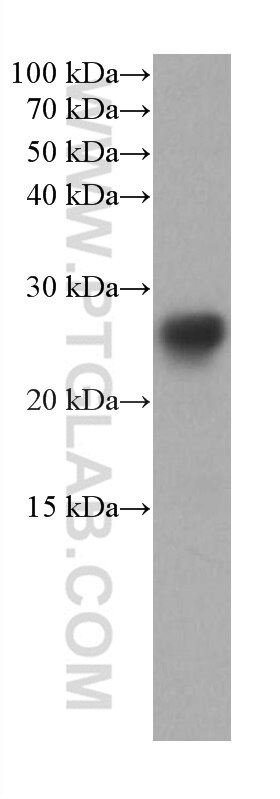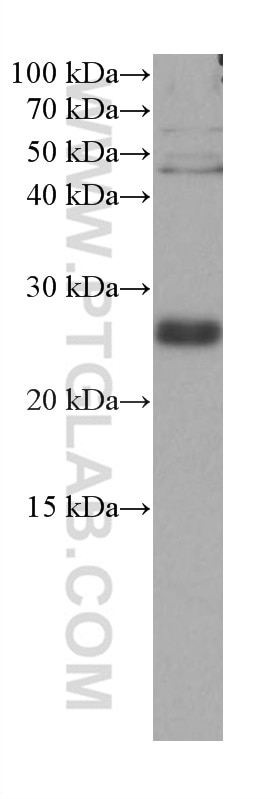Validation Data Gallery
Tested Applications
| Positive WB detected in | A549 cells, PC-3 cells, HT-29 cells, HSC-T6 cells, NIH/3T3 cells |
Recommended dilution
| Application | Dilution |
|---|---|
| Western Blot (WB) | WB : 1:4000-1:8000 |
| It is recommended that this reagent should be titrated in each testing system to obtain optimal results. | |
| Sample-dependent, Check data in validation data gallery. | |
Product Information
66959-1-Ig targets RRAS in WB, ELISA applications and shows reactivity with Human, mouse, Rat samples.
| Tested Reactivity | Human, mouse, Rat |
| Host / Isotype | Mouse / IgG2b |
| Class | Monoclonal |
| Type | Antibody |
| Immunogen |
CatNo: Ag26564 Product name: Recombinant human RRAS protein Source: e coli.-derived, PET28a Tag: 6*His Domain: 145-218 aa of BC016318 Sequence: DLESQRQVPRSEASAFGASHHVAYFEASAKLRLNVDEAFEQLVRAVRKYQEQELPPSPPSAPRKKGGGCPCVLL 相同性解析による交差性が予測される生物種 |
| Full Name | related RAS viral (r-ras) oncogene homolog |
| Calculated molecular weight | 218 aa, 23 kDa |
| Observed molecular weight | 23 kDa |
| GenBank accession number | BC016318 |
| Gene Symbol | RRAS |
| Gene ID (NCBI) | 6237 |
| RRID | AB_2882282 |
| Conjugate | Unconjugated |
| Form | |
| Form | Liquid |
| Purification Method | Protein A purification |
| UNIPROT ID | P10301 |
| Storage Buffer | PBS with 0.02% sodium azide and 50% glycerol{{ptg:BufferTemp}}7.3 |
| Storage Conditions | Store at -20°C. Stable for one year after shipment. Aliquoting is unnecessary for -20oC storage. |
Background Information
RRAS belongs to the Ras subfamily of small G-proteins, which are frequently implicated in cell growth and differentiation.RRAS is a small GTPase involved in diverse processes including angiogenesis, vascular homeostasis and regeneration, cell adhesion, and neuronal axon guidance. Mutations in this gene are found in many invasive cancers.
Protocols
| Product Specific Protocols | |
|---|---|
| WB protocol for RRAS antibody 66959-1-Ig | Download protocol |
| Standard Protocols | |
|---|---|
| Click here to view our Standard Protocols |

